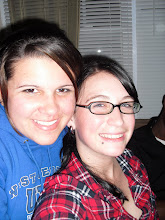I would like to write of this wilderness--
the sun, the birds, the lake, the frogs,
and the landscape that should be photographed.
But what of this panoramic paradise
has not been fleshed out to obesity,
meditated on with enough ink
to fill this lake at night?
I long for the city--
more than the cars and dogs and lights.
I ache for the leak between
my bathroom floor and living room ceiling.
I yearn for the sound of my neighbor's telephone
ringing incessantly, no one or machine
to answer bill collectors, relatives,
and customers looking to burn some green.
I love my almost-green walls--
looming above my faux-hardwood floor,
the single chip in the center
revealing its laminate bones.
I am at home in my two-story box--
electricity, running water, delivery...
and when I die, I hope my casket
is free of silly things like flowers and air
so I may rest in peace.
Subscribe to:
Post Comments (Atom)

My first thought is to highlight some of the clichéd language in this draft—things like “panoramic,” which always seems attached to landscapes, especially the photography thereof, telephones that “ring incessantly,” which, first of all—what else could a phone do, besides ring, they’re always ringing aren’t they? And, second, why are they so incessant? Could a phone, perhaps coo like a bird hidden somewhere in the dark of a parking deck? This example might be a little too strange/weak, but it makes my point, I think—just watch for constructions that seem too easy, too expected.
ReplyDeleteAnother thing: interesting use of the “almost” in the 3rd stanza, but I do have a few concerns about it. 1) What about this wall is “almost green”? The “almost” in this line allows for an exploratory dive into what, exactly, makes this wall what it is—or what gives it its specific hue, anyway. 2) And this may be a small matter, but why “green,” and not something like “tope” or “cream” or “mauve”? Why not anything but such a flat, generic descriptor? It’s not like I’m saying “you can’t use green,” but have you tried other things, other methods of coloration? If anything, I’d be a bit wary of colors in general, which, to me, seem to almost take the place of areas where you could really open up imaginatively in the work. For instance, the wall is “almost green,” sure, but what else might fit this description? Does this wall—I’m speaking as if it were real, it could most definitely be imaginary—recall the skin of some long dead lizard, or maybe the family gecko? Notice, too, that these examples allow for much richer opportunities within their connotations. Really, 9/10, anything but “green.”
I think you can cut the first stanza entirely. I level with you, even empathize with you on how difficult it is to write about nature because it’s been done to death, back to life, then done to death some more. However, I don’t think it’s necessary to this draft – which, by the way, shows a lot of promise – so you can eject it, if that tickles your fancy.
ReplyDeleteWhat I wanted to know with this piece, however, is this: what about the people? I think there are some opportunities for people – after all, in my mind, that’s what the difference is between the city and nature. Sure, there’s the cosmetic differences, but people determine that. I see an approach to specificity (“electricity, running water, deliver”) but to me, those words don’t hold enough meaning. They’re flat. If you love the city so much, what about those things is beautiful? How do people relate to those things? I loved the bit about the phone because I think it’s an avenue. Why is the neighbor’s phone ringing incessantly? Does the speaker knock on the wall a certain way to signal the neighbor to shut it up? Is it an ex-boyfriend calling the neighbor? Do they ever argue, can you hear it through the walls? I think you see where I’m going with this.
Just wanted to say – I love the ending, but I think maybe “flowers and air” just don’t quite cut it. You need something a little more poignant there.